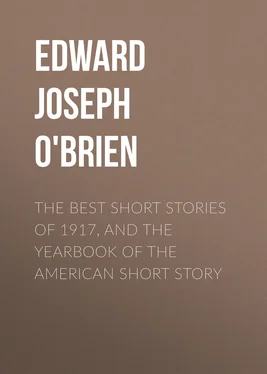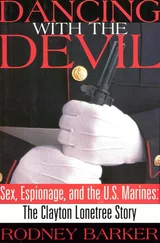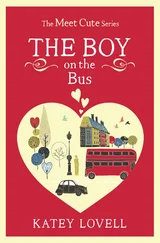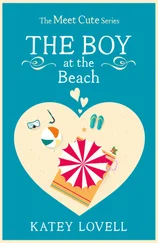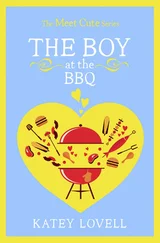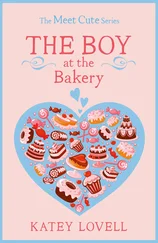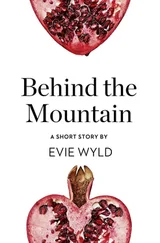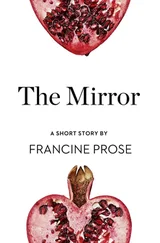Edward O'Brien - The Best Short Stories of 1917, and the Yearbook of the American Short Story
Здесь есть возможность читать онлайн «Edward O'Brien - The Best Short Stories of 1917, and the Yearbook of the American Short Story» — ознакомительный отрывок электронной книги совершенно бесплатно, а после прочтения отрывка купить полную версию. В некоторых случаях можно слушать аудио, скачать через торрент в формате fb2 и присутствует краткое содержание. Издательство: Иностранный паблик, Жанр: foreign_prose, literature_20, foreign_antique, на английском языке. Описание произведения, (предисловие) а так же отзывы посетителей доступны на портале библиотеки ЛибКат.
- Название:The Best Short Stories of 1917, and the Yearbook of the American Short Story
- Автор:
- Издательство:Иностранный паблик
- Жанр:
- Год:неизвестен
- ISBN:нет данных
- Рейтинг книги:3 / 5. Голосов: 1
-
Избранное:Добавить в избранное
- Отзывы:
-
Ваша оценка:
- 60
- 1
- 2
- 3
- 4
- 5
The Best Short Stories of 1917, and the Yearbook of the American Short Story: краткое содержание, описание и аннотация
Предлагаем к чтению аннотацию, описание, краткое содержание или предисловие (зависит от того, что написал сам автор книги «The Best Short Stories of 1917, and the Yearbook of the American Short Story»). Если вы не нашли необходимую информацию о книге — напишите в комментариях, мы постараемся отыскать её.
The Best Short Stories of 1917, and the Yearbook of the American Short Story — читать онлайн ознакомительный отрывок
Ниже представлен текст книги, разбитый по страницам. Система сохранения места последней прочитанной страницы, позволяет с удобством читать онлайн бесплатно книгу «The Best Short Stories of 1917, and the Yearbook of the American Short Story», без необходимости каждый раз заново искать на чём Вы остановились. Поставьте закладку, и сможете в любой момент перейти на страницу, на которой закончили чтение.
Интервал:
Закладка:
"I brought her along," sighed Mrs. Mealer, "tain't as if neither of us could take much pleasure into it, both of us being so deep in black fer her Popper, but the styles is bound to do her good. Emma is such a great hand for style."
"Yuess?" replied Mrs. Tuttle blandly. This lady in blue was not nearly so interested in Emma as in keeping a circle of admirers hanging around her cerulean presence, but even slightly encouraged, Mrs. Mealer warmed to her topic.
"Style?" she repeated impressively, "style? Seems like Emma couldn't never have enough of it. Where she got it I don't know. I wasn't never much for dress, and give her Popper coat and pants, twuz all he wanted. But Emma—ef you want to make her happy tie a bow onto suthin'."
Mrs. Tuttle nodded with ostentatious understanding. Rising, she seized Romeo's cage and placed it more conspicuously near her. She was critically watched by the older women. They viewed the thing with mingled feelings, one or two going so far as to murmur darkly, "Her and her parrot!"
Still, the lady's elegance and the known fact that she owned and operated her own automobile cast a spell over most of her observers, and many faces, as Mrs. Tuttle proceeded to draw out her pet, were screwed into watchful and ingratiating benevolence.
Romeo, a blasé bird with the air of having bitter memories, affected for a long time not to hear his mistress's blandishments. After looking contemptuously into his seed-cup, he crept slowly around the sides of his cage, fixing a cynical eye upon all observers.
"How goes it, Romeo?" appealed Mrs. Tuttle. Making sounds supposed to be appreciated by birds, the lady put her feathered head down, suggesting, "Ah there, Romeo?"
"Rubberneck," returned Romeo sullenly. To show general scorn, the bird revolved on one claw round and round his swing; he looked dangerous, repeating, "Rubberneck."
At this an interested group gathered around Mrs. Tuttle, who, affable and indulgent, attempted by coaxings and flirtings of a fat bediamonded finger to show Romeo off, but the pampered bird saw further opportunity to offend.
"Rubberneck," screamed Romeo again. He ruffled up his neck feathers, repeating "Rubberneck, I'm cold as the deuce; what's the matter with Hannah; let 'em all go to grass."
Several of the youths with ivory-headed canes now forsook their contemplations to draw near, grinning, to the parrot-cage.
Stimulated by these youths, Romeo reeled off more ribald remarks, things that created a sudden chill among the passengers on the Fall of Rome . Mrs. Tinneray, looked upon as a leader, called up a shocked face and walked away; Mrs. Mealer after a faint "Excuse me ," also abandoned the parrot-cage; and Mrs. Bean, a small stout woman with a brown false front, followed the large lady with blue spectacles and the tan linen duster. On some mysterious pretext of washing their hands, these two left the upper deck and sought the calm of the white and gold passenger saloon. Here they trod as in the very sanctities of luxury.
"These carpets is nice, ain't they?" remarked Mrs. Bean.
Then alluding to the scene they had just left: "Ain't it comical how she idolizes that there bird?"
Mrs. Tinneray sniffed. "And what she spends on him! 'Nitials on his seed-cup—and some says the cage itself is true gold."
Mrs. Bean, preparing to wash her hands, removed her black skirt and pinned a towel around her waist. "This here liquid soap is nice"—turning the faucets gingerly—"and don't the boat set good onto the water?" Then returning to the rich topic of Mrs. Tuttle and her pampered bird, "Where's she get all her money for her ottermobile and her gold cage?"
Mrs. Tinneray at an adjacent basin raised her head sharply, "You ain't heard about the Tuttle money? You don't know how Mabel Hutch that was, was hair to everything?"
Mrs. Bean confessed that she had not heard, but she made it evident that she thirsted for information. So the two ladies, exchanging remarks about sunburn and freckles, finished their hand-washing and proceeded to the dark-green plush seats of the saloon, where with appropriate looks of horror and incredulity Mrs. Bean listened to the story of the hairs to the Hutches' money.
"Mabel was the favorite; her Pa set great store by her. There was another sister—consumpted—she should have been a hair, but she died. Then the youngest one, Hetty, she married my second cousin Hen Cronney—well it seemed like they hadn't nothing but bad luck and her Pa and Mabel sort of took against Hetty."
Mrs. Bean, herself chewing calculatingly, handed Mrs. Tinneray a bit of sugared calamus-root.
"Is your cousin Hen dark-complexioned like your folks?" she asked scientifically.
Mrs. Tinneray, narrowing both eyes, considered. "More auburn-inclined, I should say—he ain't rill smart, Hen ain't, he gets took with spells now and then, but I never held that against him."
"Uh-huh!" agreed Mrs. Bean sympathetically.
"Well, then, Mabel Hutch and her Popper took against poor little Hetty. Old man Hutch he died and left everything to Mabel, and she never goes near her own sister!"
Mrs. Bean raised gray-cotton gloved hands signifying horror.
"St—st—st–!" she deplored. She searched in her reticule for more calamus-root. "He didn't leave her nothing ?"
"No, ma'am! This one!" With a jerk of the head, Mrs. Tinneray indicated a dashing blue feather seen through a distant saloon window. "This one's got it all; hair to everything."
"And what did she do—married a traveling salesman and built a tony brick house. They never had no children, but when he was killed into a railway accident she trimmed up that parrot's cage with crape—and now,"—Mrs. Tinneray with increasing solemnity chewed her calamus-root—" now she's been and bought one of them ottermobiles and runs it herself like you'd run your sewin'-machine, just as shameless —"
Both of the ladies glared condemnation at the distant blue feather.
Mrs. Tinneray continued, "Hetty Cronney's worth a dozen of her. When I think of that there bird goin' on this excursion and Hetty Cronney stayin' home because she's too poor, I get nesty , Mrs. Bean, yes, I do!"
"Don't your cousin Hetty live over to Chadwick's Harbor," inquired Mrs. Bean, "and don't this boat-ride stop there to take on more folks?"
Mrs. Tinneray, acknowledging that these things were so, uncorked a small bottle of cologne and poured a little of it on a handkerchief embroidered in black forget-me-nots. She handed the bottle to Mrs. Bean who took three polite sniffs and closed her eyes. The two ladies sat silent for a moment. They experienced a detachment of luxurious abandon filled with the poetry of the steamboat saloon. Psychically they were affected as by ecclesiasticism. The perfume of the cologne and the throb of the engines swept them with a sense of esthetic reverie, the thrill of travel, and the atmosphere of elegance. Moreover, the story of the Hutch money and the Hutch hairs had in some undefined way affiliated the two. At last by tacit consent they rose, went out on deck and, holding their reticules tight, walked majestically up and down. When they passed Mrs. Turtle's blue feathers and the gold parrot-cage they smiled meaningly and looked at each other.
As the Fall of Rome approached Chadwick's Landing more intimate groups formed. The air was mild, the sun warm and inviting, and the water an obvious and understandable blue. Some serious-minded excursionists sat well forward on their camp-stools discussing deep topics over half-skinned bananas.
"Give me the Vote," a lady in a purple raincoat was saying, "Give me the Vote and I undertake to close up every rum-hole in God's World."
A mild-mannered youth with no chin, upon hearing this, edged away. He went to the stern, looking down for a long time upon the white path of foam left in the wake of the Fall of Rome and taking a harmonica from his waistcoat pocket began to play, "Darling, I Am Growing Old." This tune, played with emotional throbbings managed by spasmodic movements of the hands over the sides of the mouth, seemed to convey anything but age to Miss Mealer, the girl who was so refined. She also sat alone in the stern, also staring down at the white water. As the wailings of the harmonica ceased, she put up a thin hand and furtively controlled some waving strands of hair. Suddenly with scarlet face the mild-mannered youth moved up his camp-stool to her side.
Читать дальшеИнтервал:
Закладка:
Похожие книги на «The Best Short Stories of 1917, and the Yearbook of the American Short Story»
Представляем Вашему вниманию похожие книги на «The Best Short Stories of 1917, and the Yearbook of the American Short Story» списком для выбора. Мы отобрали схожую по названию и смыслу литературу в надежде предоставить читателям больше вариантов отыскать новые, интересные, ещё непрочитанные произведения.
Обсуждение, отзывы о книге «The Best Short Stories of 1917, and the Yearbook of the American Short Story» и просто собственные мнения читателей. Оставьте ваши комментарии, напишите, что Вы думаете о произведении, его смысле или главных героях. Укажите что конкретно понравилось, а что нет, и почему Вы так считаете.
